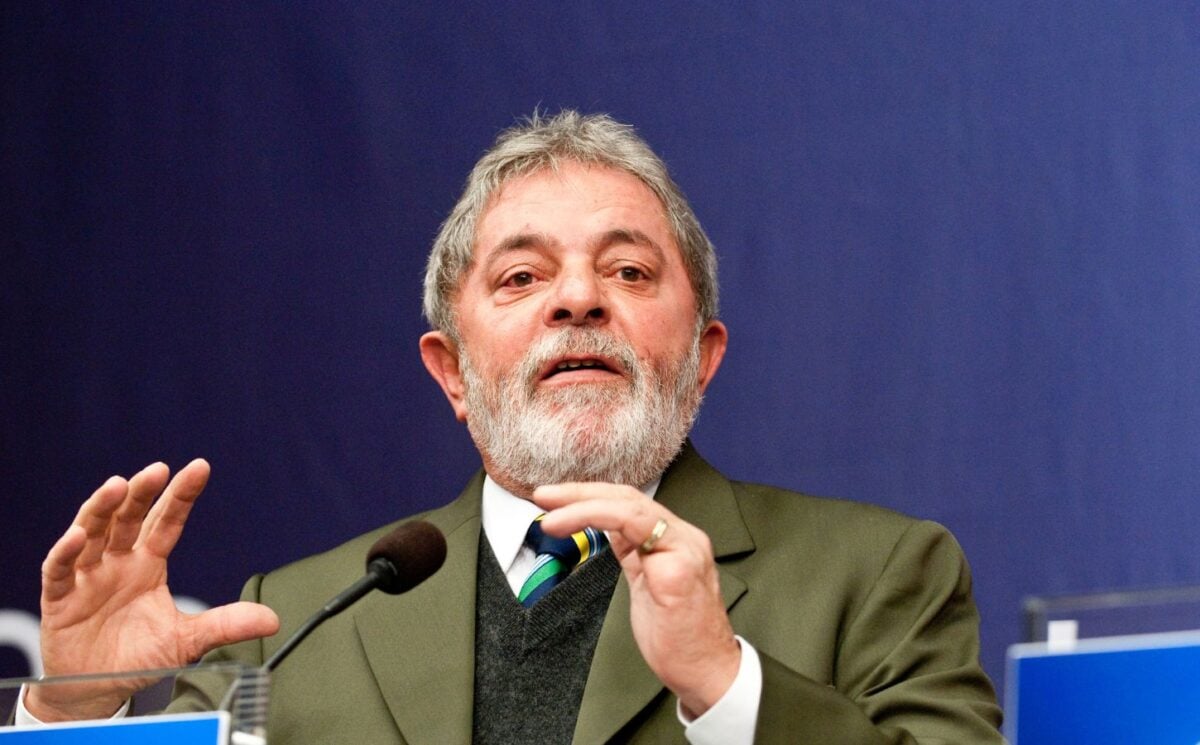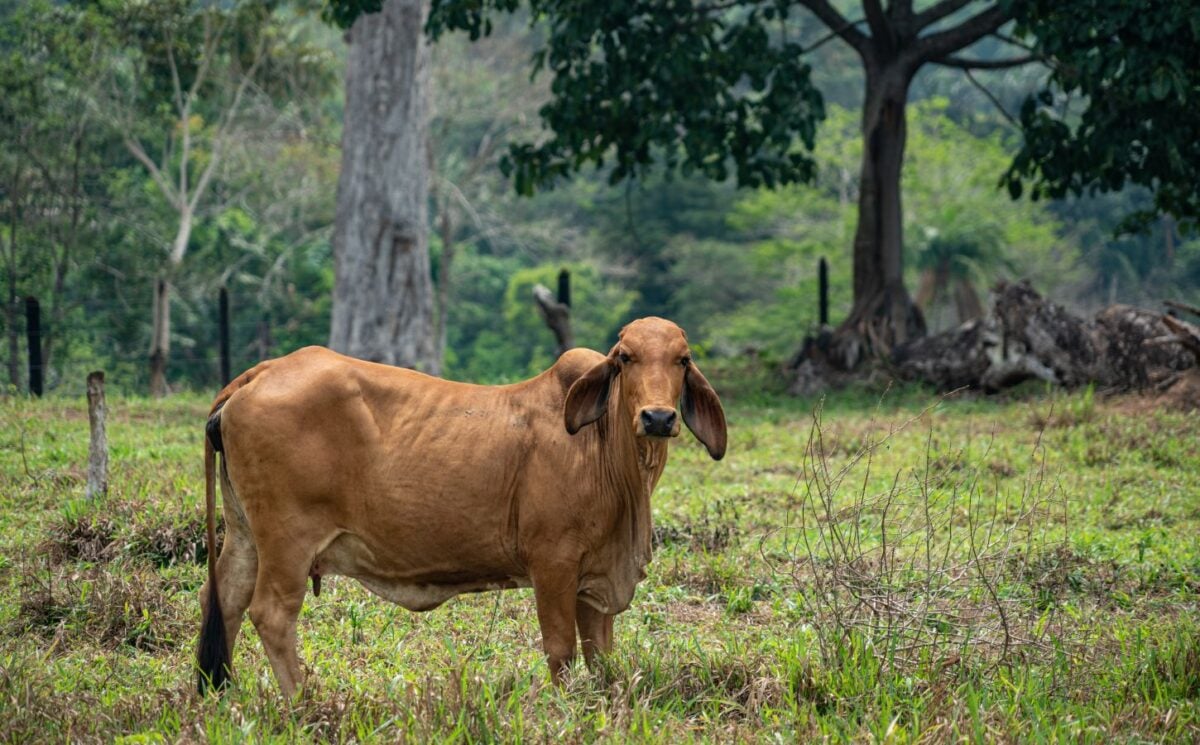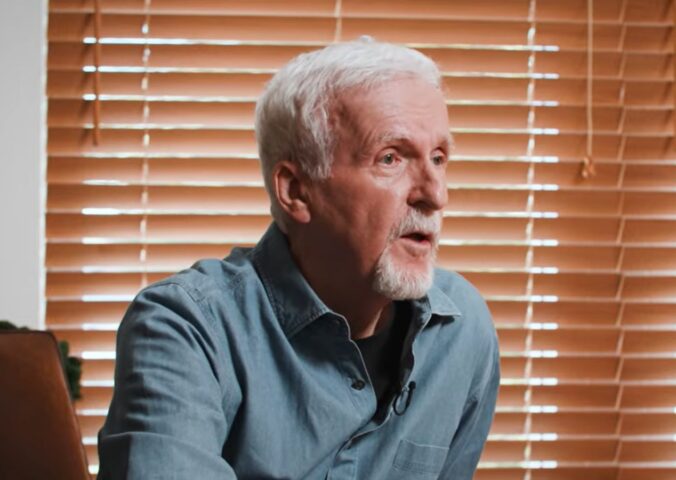JBS, the world’s largest meat producer, and Brazil’s President Luiz Inácio Lula da Silva have made a deal with China to massively increase Brazil’s beef exports.
Read more: Meat And Dairy Companies Given Over Half A Trillion In Funding Since Paris Agreement
Though Brazil is lauding the deal as an economic achievement, environmentalists warn that the expansion of JBS’s beef operations could spell catastrophe for the Amazon.
The deal “will expand herd sizes by millions – ultimately impacting critical biodiversity areas and Indigenous communities – and may single-handedly shift the Amazon from a net sink to a net emitter of planet-warming emissions,” wrote environmental scientist Nicholas Carter on Linkedin.
Lula’s “new Amazon dream”

Following Lula’s return to the presidency after he beat far-right former president Jair Bolsonaro in 2022, he vowed to end deforestation in the Amazon by 2030. He planned to bring an end to the era of destruction and violence in the rainforest under his predecessor, and create “a new Amazon dream.” In the first six months of Lula’s term, deforestation fell by 34 percent.
Now the deal with JBS and China may threaten this progress. On April 12, Lula, in the company of JBS bosses Wesley and Joesley Batista, visited the JBS factory from which the first shipment of meat will leave for China as part of a new deal. This was to “underscore the significance of the expansion of meat exports to China,” said the Brazilian government.
JBS and deforestation
Cattle ranching was the leading cause of the rising deforestation rates during Bolsonaro’s presidency. JBS has long been implicated in Amazon deforestation. Though it committed in 2021 to be deforestation free in its supply chain by 2035, its track record doesn’t bode well for achieving this goal.
Read more: Will Eating Chicken Really Save The Planet?
Environmental group Mighty Earth ranks JBS as the worst among meat companies for deforestation in the Amazon and Cerrado. It is linked to more than 100,000 hectares of land clearance. Three-quarters of that was possibly illegal, and almost half occurred between 2019 and 2021 alone.
Other investigations have revealed that JBS is failing to track the movements of all the cattle in its supply chain, and doesn’t always know when they come from deforested land. This is because the cows move to different sites several times before slaughter, and JBS only systematically monitors the final location.
Meanwhile, JBS is planning to expand its operations, meaning more cattle. As part of the deal with China, it will invest around $29 million to double beef production to the equivalent of 4,400 cows at meat plants that Lula visited with the Batista brothers. Under the deal, Mato Grosso do Sul, the state where the facilities are located, will be able to export meat from 2.3 million cows to China each year. This is an increase of more than 1.8 million on the previous capacity of the meat plants in the state.
Amazon as a source of emissions
A 2021 study found that human destruction of the Amazon had turned parts of the rainforest into a net emitter of greenhouse gas emissions. Sections that have been heavily impacted by deforestation and fire have been producing a billion tonnes more carbon dioxide each year than they can absorb.
The only way to return the Amazon to being a net absorber of carbon is to restore the damaged areas, say scientists. The expansion of JBS and cattle ranching in the region could make that impossible and calls Lula’s commitment to protect the Amazon into question.
Read more: EU Making Animal Diets ‘Artificially Cheap’ With Subsidies, Report Finds
But JBS is trying to position itself as beneficial for biodiversity, warns Carter. “JBS is clearly increasing their delay and greenwashing tactics,” he said on Linkedin. “They’re claiming to be bringing biodiversity back and making vague regenerative agriculture claims in addition to utilizing their power to influence science based targets like SBTi [Science Based Target initiative].”
In a recent report on disinformation in the meat industry, Carter explained that SBTi has previously helped hold companies to account for their emissions reductions plans. But recently it has launched a new program in consultation with meat companies that could allow them to make bold climate claims while doing little to actually reduce their emissions.
JBS is currently being sued by the New York attorney-general Letitia James for greenwashing with its claims to having sustainable business practices.






